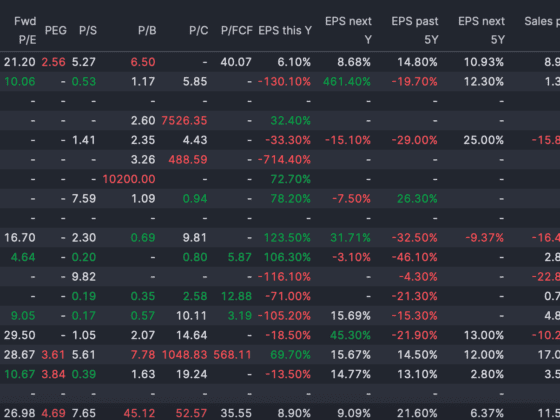Navigating turbulent markets can feel like sailing through a storm without a compass. However, as experienced traders, we’ve learned that you can survive and thrive during market volatility with the right strategies and mindset. In this post, we’ll share our insights and practical tips on handling market turbulence, helping you turn uncertainty into opportunity.
Understanding the Concept of a Budget and Its Importance in Investing
Budgeting isn’t just about managing your daily expenses; it’s also a crucial component of successful investing. A well-structured budget can help you allocate funds effectively, ensuring you have enough capital to take advantage of market opportunities while protecting yourself against potential losses.
The Role of a Budget in Investing
When markets are volatile, having a clear budget helps you stay disciplined. It ensures that you don’t overextend yourself financially and have a cushion to fall back on if things don’t go as planned. Here’s why budgeting is essential:
- Risk Management: By setting aside a specific amount for investing, you limit your exposure to market risks. This way, even if the market is downturned, you won’t jeopardize your financial stability.
- Opportunity Fund: A budget allows you to set aside funds to take advantage of market dips. When others are panicking, you can buy quality assets at a discount.
- Emotional Control: Knowing your financial boundaries helps you manage your emotions. If you have a clear budget in place, you’re less likely to make impulsive decisions driven by fear or greed.
Creating a Budget for Investing
- Assess Your Income and Expenses: Start by listing all your sources of income and your regular expenses. This will give you a clear picture of how much you can afford to allocate to investing.
- Set Financial Goals: Define your short-term and long-term financial goals. Are you saving for a house, your children’s education, or retirement? Knowing your goals will help you determine how much to invest.
- Allocate Funds: Based on your financial assessment and goals, allocate a percentage of your income to investing. A common rule of thumb is 50/30/20: 50% for necessities, 30% for discretionary spending, and 20% for savings and investments.
- Review and Adjust: Regularly review your budget to ensure it aligns with your financial goals and market conditions. Be flexible and make adjustments as needed.
Strategies for Investing During Turbulent Markets
Investing during turbulent markets requires strategy, patience, and discipline. Here are some tried-and-true strategies to help you navigate volatility:
1. Diversify Your Portfolio
Diversification is one of the most effective ways to manage risk. By spreading your investments across different asset classes, industries, and geographical regions, you can reduce the impact of a downturn in any single investment.
How to Diversify
- Stocks: Invest in large-cap, mid-cap, and small-cap stocks. Consider both domestic and international companies.
- Bonds: Include government and corporate bonds in your portfolio to add stability.
- Real Estate: Real estate investments can provide a steady income stream and act as a hedge against inflation.
- Commodities: Consider investing in commodities like gold, silver, and oil, which often perform well during economic uncertainty.
- Mutual Funds and ETFs: These can provide instant diversification by pooling investments in various assets.
2. Focus on Quality Investments
During turbulent times, it’s crucial to focus on high-quality investments. These companies typically have strong balance sheets, reliable cash flows, and a history of weathering economic downturns.
Characteristics of Quality Investments
- Strong Financials: Look for companies with low debt levels, high return on equity, and stable earnings growth.
- Market Leaders: Companies that dominate their industries are often better positioned to survive and thrive during economic downturns.
- Defensive Stocks: These are stocks of companies that provide essential goods and services, such as utilities, healthcare, and consumer staples. They tend to be more resilient during market volatility.
3. Use Dollar-Cost Averaging
Dollar-cost averaging involves investing a fixed amount of money regularly, regardless of market conditions. This strategy reduces the impact of market volatility by spreading out your purchases over time.
Benefits of Dollar-Cost Averaging
- Reduces Emotional Investing: By sticking to a regular investment schedule, you avoid making impulsive decisions based on market movements.
- Lowers Average Cost: When the market is down, your fixed investment amount buys more shares, lowering your average cost per share over time.
- Simplifies Investing: This straightforward strategy makes it ideal for novice and experienced investors.

4. Maintain a Long-Term Perspective
One of investors’ biggest mistakes during turbulent markets is focusing too much on short-term fluctuations. Maintaining a long-term perspective helps you stay calm and avoid rash decisions.
Why Long-Term Investing Works
- Market Recoveries: History shows that markets eventually recover from downturns. By staying invested, you can benefit from the rebound.
- Compound Growth: Long-term investing allows investments to compound over time, leading to significant growth.
- Avoiding Timing the Market: Timing the market is extremely difficult and often leads to poor investment decisions. A long-term approach eliminates the need for market timing.
5. Stay Informed and Adapt
While maintaining a long-term perspective is important, staying informed about market conditions and economic trends is also crucial. This knowledge allows you to adapt your strategy as needed.
How to Stay Informed
Seek Professional Advice: Consult a financial advisor for personalized advice and insights.
Follow Financial News: Keep up with financial news and market analysis from reputable sources.
Regular Portfolio Reviews: Review your portfolio to ensure it aligns with your investment goals and risk tolerance.
More anecdotes and actions in Investing in Turbulent Markets: How to Navigate Volatility Like a Pro – Part 2
Ready to take control of your investments and navigate market volatility like a pro? Start by assessing your current portfolio and creating a solid investment plan. Stay informed, stay disciplined, and remember to keep a long-term perspective. Join our investment community today for more tips, resources, and support on your investing journey.







